The Electric Trailer
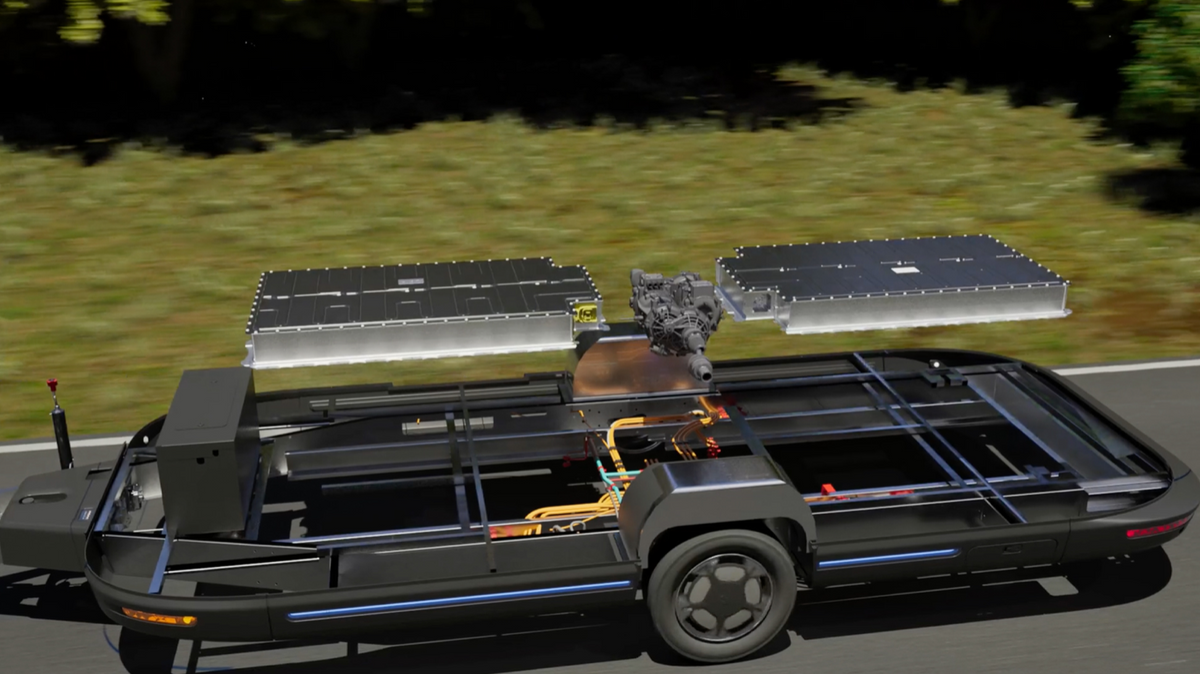
Customer deliveries of electric trucks have started and the real world consumption and range numbers have started to populate the forums and social media pages. As expected, 7,000lb EV trucks use a lot of electricity to propel themselves down the road - about 50% more than a typical EV sedan or small sport utility. Most drivers of the Ford Lightning are getting between 30kWh-40kWh per 100km in good conditions. With a big enough battery pack EV trucks can still get decent range. Dividing 35kWh/100km into the large 130kWh battery pack of a Ford Lightning will give 370km of range. This is about what our Ionic 5 manages with a 77kWh battery pack and 20kWh/100km of consumption.
But try to pull a large trailer with an EV and the range drops dramatically. In some EV towing tests, consumption pulling a 30 foot travel trailer increases to something around 80kWh/100km. This means that even if you spec the big 130kWh battery with your Lightning, you aren't going to go any further than 150km before you need to stop and charge. None of the DC fast charge stations in this area are pull through, meaning you will almost certainly need to decouple the trailer to access the charging station. The DC charging infrastructure is still spotty at best, and many stations will only dispense 50kW, even if they are rated at 150kW or 350kW. This means you will drive for 1.5hours, stop to decouple the trailer, move to the charging station and sit there for more than 2 hours before hooking up the trailer again. With kids in the truck. The trip would be excruciating.
If you were a contractor or a landscaper and you needed to haul a utility trailer to a job site within the city limits you wouldn't have any problems. Ford's optional 19kW AC home/shop charger could replenish a day's use in 4/5 hours. You would have the benefit of a large portable power station that could charge batteries and provide power to plug in tools. But a family vacation pulling a travel trailer? It just isn't going to happen.
But what if the trailer were electric too?
The trailer could propel itself, meaning no loss of range for the truck. Longer road trips would now be possible. For our family's summer camping trips we generally stay three or four days in one campground, then pack up and move to the next destination which is usually an easy day's drive away. The campgrounds have 50Amp electrical service which give about 10kW of continuous power, meaning both truck and trailer could be charged overnight. We probably wouldn't use the DC fast chargers, except maybe once on the last leg home.
There are also some other benefits:
1) Stability Control - Equipping the trailer with two electric motors means that you can brake and accelerate each wheel independently. This means you can eliminate trailer sway and dramatically increase stability in cross winds.
2) Brake Regeneration - The motors can act as generators, braking the truck-trailer unit, and feeding electricity back to the battery. Without using the friction brakes no friction is created, no heat, no boiling brake fluid, and no worry when descending steep declines.
3) Remote Maneuvering - With a motor attached to each wheel and a dolly on the tongue, the trailer can be moved remotely. You can de-couple the trailer and move the trailer into its spot via an app on your phone. You can move the trailer around on your driveway or your yard, without having to attach the truck to it.
4) Increased Traction - The self-propelled trailer can assist in low traction situations such as scrambling up access roads to reach remote camping spots.
5) Deletion of Propane - With a large battery pack, propane is unnecessary. This means one less thing to worry about in terms of preparation and you don't have to worry about gas explosions or CO poisoning your family while they sleep. Also, there is no issue keeping the fridge running when on the road (you are supposed to cut off the gas when the trailer is in motion). Ferries in BC limit the size of the propane bottles to 25lbs; this is an issue for some of us with larger RVs (we have twin 40lbs with our Silver Streak).
6) Extended Off-The-Grid-Camping - Even gas powered appliances require 12V power to operate. If the batteries die, your furnace, fridge and hot water heater won't work. Most RVs will run out of power in 3/4 days using the deep cycle RV/Marine batteries they are equipped with. An EV trailer can easily double this, making a week or even two week off-the-grid camping trip possible. Solar cells on the roof can extend this indefinitely depending on location.
7) Additional Battery Storage For The Home - When the RV isn't being used - which is most of the time - the battery could be put to good use as a portable power source or for emergency back up power. It could be integrated into your home's electrical system and used to store excess solar energy, or capture cheap electricity during the off-peak hours.
When I load our family up for our summer camping trips I am very conscious of some of the dangers: The truck running out of brakes on a steep decline; a gas leak and/or explosion; trailer sway leading to an accident. The electric trailer basically nullifies these.
Backing up the trailer goes well most of the time, but there are situations where we arrive at the campsite at night or the access is tight or the trailer has to back to the right when it doesn't go well. I have both a utility trailer and a travel trailer parked in tandem on my driveway. They are always in the wrong order when I need one. Being able to maneuver the trailer remotely would come in very handy in many situations.
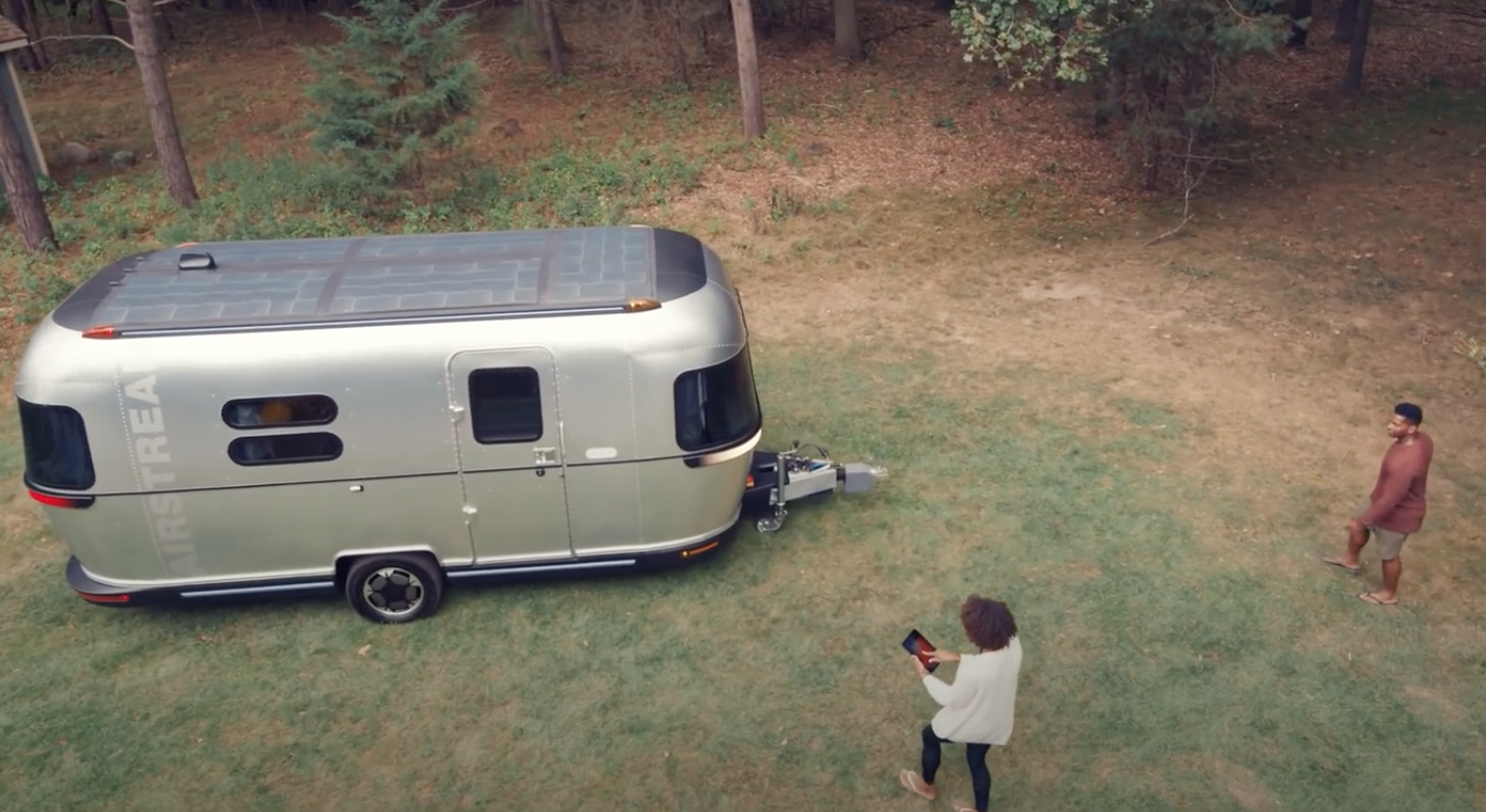
Airstream came up with an electric travel trailer and, in my opinion, just nailed it. Because the under-floor area of a travel trailer is mostly insulation, there is no change to the packaging of the electric Airstream. But for the absence of propane bottles and a battery box normally carried on top of the front A-frame, it looks the same as their conventional models. It has all the advantages listed above.
Airstream licensed the entire EV drivetrain from ZF, who pioneered it with a European Trailer called the Dethleffs E.Home. Pulled by an Audi e Tron Sportback, the rig successfully completed a 240 mile route across the Italian Alps without recharging.
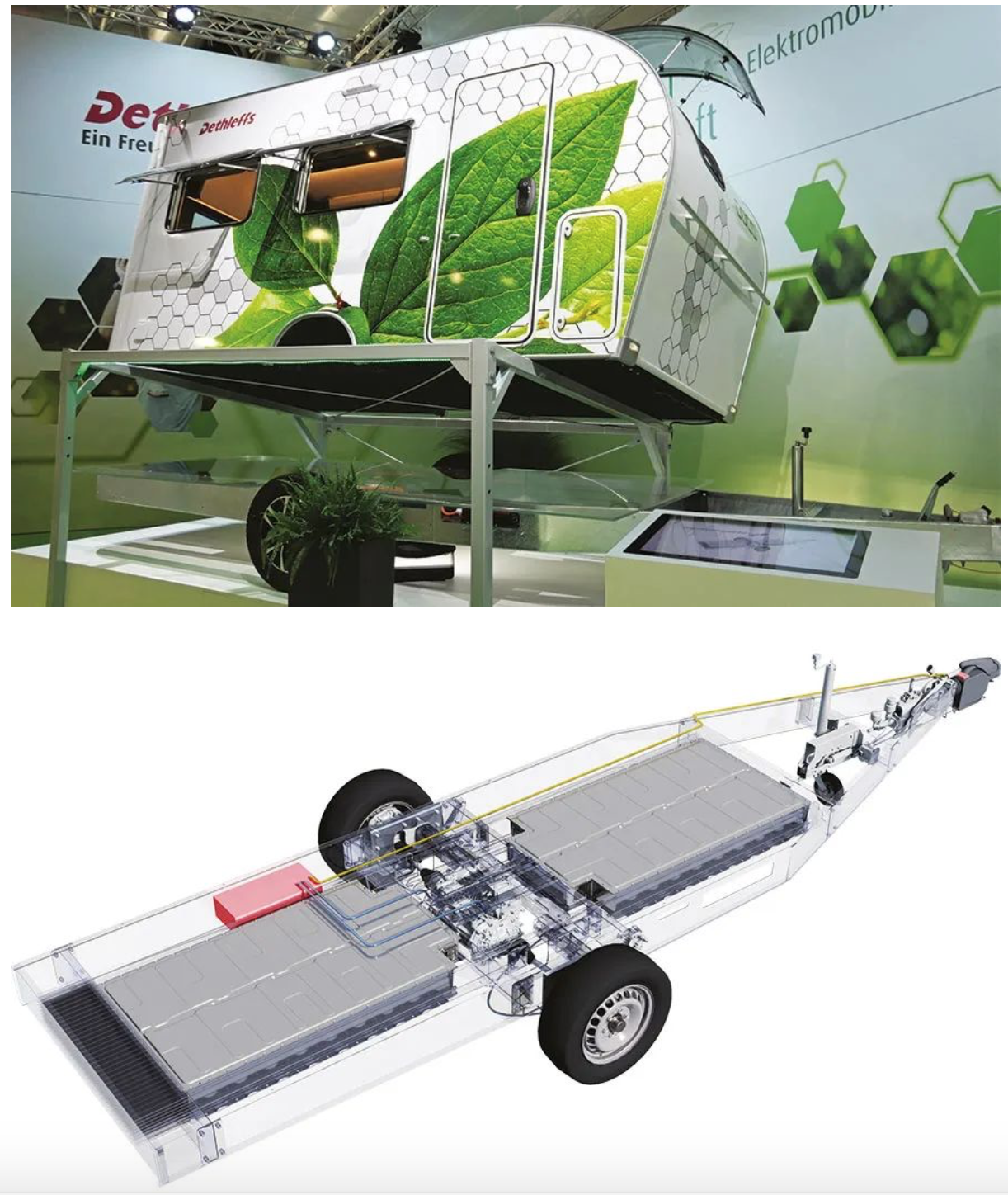
What are the downsides? Well, not much, apart from great cost! An Airstream is already expensive enough, without what is essentially an EV powertrain underneath. If a 25' conventional Airstream is $150,000 in Canada, then the electric version is probably going to be $225,000 or more. Add to that another $125,000 to buy a Rivian to pull it with and you have a pretty expensive rig - about the same as one of the huge diesel pusher RVs with a home theatre and multiple slide-outs. It is tough to justify on the basis of utility, but if you want a more ecologically friendly means of RV'ing and can afford it, the electric truck/trailer really is the cat's meow.
Lawrence Romanosky, Calgary, Canada
Lromanosky@me.com, 403-607-8625

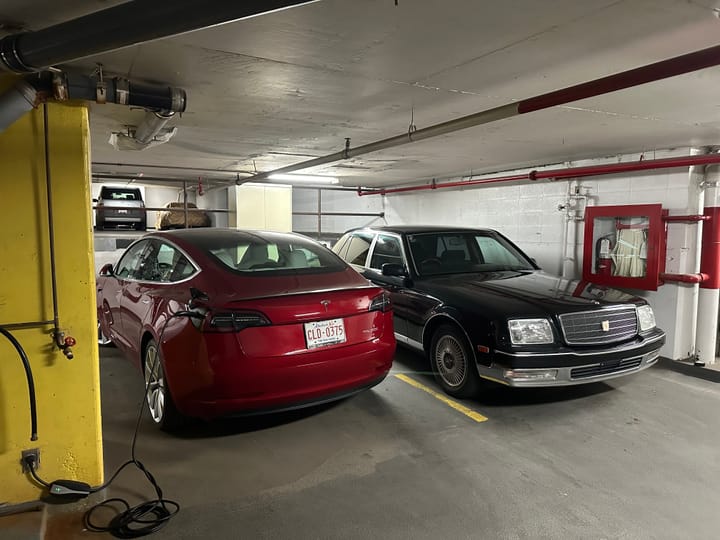
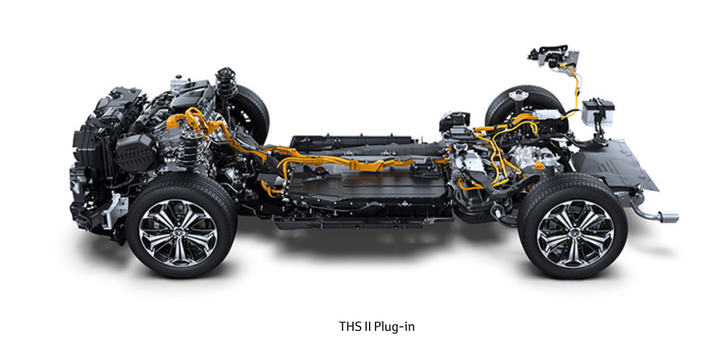
Comments ()